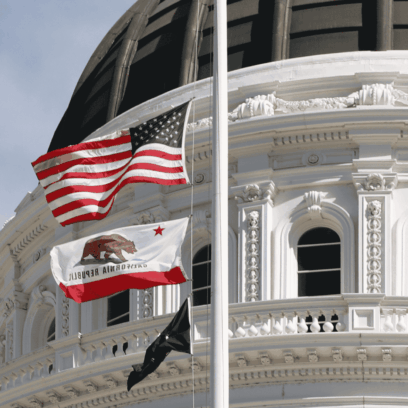Role of 3rd Party Assurance


🌍 Carbon markets can feel overwhelming—fragmented data, limited transparency, and conflicting advice make it hard to know where to start. In this webinar, our experts give a clear, practical introduction to the VCM.
Building trust and compliance through independent verification of sustainability data.
As sustainability reporting becomes standard practice, and in many cases a legal requirement, one question continues to surface: Can we trust the data?Whether it’s greenhouse gas inventories, DEI metrics, or climate targets, stakeholders want transparency they can rely on. That includes investors, board members, employees, and increasingly, regulators.
Recent regulations like the SEC’s proposed climate rule, California’s SB 253, and the EU’s Corporate Sustainability Reporting Directive (CSRD) are making one thing clear: independent assurance of sustainability data is no longer optional.
Before mandates kick in, companies are turning to third-party assurance to strengthen credibility, make informed decisions, and guard against greenwashing. This blog breaks down what third-party assurance means, why it’s becoming essential, and how to get started.
What Is Third-Party Assurance in Sustainability Reporting?
Third-party assurance (3PA) is the independent evaluation of ESG or climate-related assessments by an outside expert. Its purpose is to confirm that the information a company discloses is complete, consistent, and credible.
Assurance is often applied to:
- GHG inventories (Scope 1, 2, and 3 emissions)
- GHG Protocol, used for verifying GHG emissions estimation
- ESG disclosures, such as DEI, water use, or waste diversion
- Climate-related claims, including net-zero targets and transition plans
These evaluations follow established standards like:
- ISAE 3000 – used for non-financial reporting
- AA1000AS – from Accountability, focused on ESG performance
- ISO 14064-3 – used specifically for verifying GHG emissions estimation
There are two main types of assurance:
- Limited assurance – A lower level of scrutiny, roughly equivalent to a plausibility check
- Reasonable assurance – More rigorous, closer in depth to a financial audit
Most organizations start with limited assurance and scale up as their reporting matures.
Benefits of Assurance: Beyond Compliance
Notably, even before it’s required, third-party assurance delivers clear business value:
| Credibility | Signals transparency and reliability to external stakeholders |
| Readiness for Regulation | Gets you ahead of mandates like CSRD, SEC, or SB 253 |
| Internal Confidence | Provides leadership with better data for decisions |
| Stakeholder Trust | Builds confidence with investors, customers, and partners |
| Greenwashing Protection | Reduces legal and reputational risk from questionable claims |
When assurance becomes part of your sustainability strategy, it reinforces both internal systems and external trust.
When and Where Assurance Is Required (or Expected)
Assurance requirements are rapidly evolving. Here’s where things stand today:
- California SB 253
- Requires limited assurance for GHG emissions by 2026
- Escalates to reasonable assurance by 2030
- EU CSRD
- Begins phasing in limited assurance for sustainability disclosures starting in 2025–2026
- Will tighten over time
- SEC Climate Disclosure Rule
- Once finalized, will require GHG data assurance for large filers
Even outside of regulatory obligations, market expectations are shifting. Investors, ESG ratings agencies, and customers increasingly expect verified data. Additionally, many companies also seek assurance voluntarily to meet internal goals or align with Science-Based Targets initiative (SBTi) requirements.
How the Assurance Process Works
Third-party assurance follows a structured, repeatable process:
1. Pre-engagement Planning
- Define the scope of the review (GHG only? ESG disclosures? Entire operations?)
- Select the appropriate assurance standard and level (limited vs. reasonable)
2. Data Collection & Preparation
- Gather and organize sustainability data
- Identify any gaps or inconsistencies
- Establish internal quality control processes
3. Independent Review
- The assurance provider tests data accuracy and evaluates methodologies
- May include site visits, interviews, or system walkthroughs
4. Opinion Issued
- You receive a formal statement of assurance
- Includes any limitations, findings, or areas for improvement
- Typically published in your ESG report or annual sustainability disclosure
5. Management Response & Continuous Improvement
Turn insights into action to boost your assurance readiness long term
Choosing the Right Assurance Partner
Not all assurance providers are equal. When selecting the right third-party partner, look for:
| Approachability | You want a collaborative partner, not just a checkbox validator |
| Qualifications & Standards | Familiarity with ISAE 3000, ISO 14064-3, GHG Protocol, or AA1000AS |
| Independence | Avoid firms with potential conflicts of interest |
| Sector Experience | Deep understanding of your industry’s ESG risks and practices |
| Scalability | Ability to support growth from limited to reasonable assurance over time |
| Approachability | You want a collaborative partner, not just a checkbox validator |
How CarbonBetter Supports Clients
We help organizations:
- Get assurance-ready by improving data systems and internal documentation
- Select the right path for assurance based on your needs and goals
- Review data, methodologies and the overall estimation accordingly providing an assurance statement
- Identify improvement opportunities within the relevant ESG assessment process and outcomes
- Translate assurance findings into clear, actionable improvements
We’re not just here for the audit, we’re a partner in your sustainability reporting journey.
Conclusion
Third-party assurance is rapidly becoming a new baseline for credible sustainability reporting. Companies that start early don’t just get ahead of regulation, they gain trust, sharpen internal decision-making, and reduce the risk of missteps.
Whether you’re preparing for SB 253, targeting SBTi compliance, or just want better data for leadership, third-party assurance can be a smart next step.
Need help getting assurance-ready?
CarbonBetter can guide you from planning to execution, ensuring your ESG reporting stands up to scrutiny and delivers value along the way.
Contact us to learn how we can support your journey toward a low-carbon future. Let’s get started.
Third-party assurance is an independent review of ESG or climate-related data conducted by a qualified external organization. Its purpose is to validate the accuracy, completeness, and credibility of disclosures like GHG inventories, DEI metrics, and net-zero claims. It builds stakeholder trust, supports regulatory readiness, and reduces the risk of greenwashing.
There are two primary types:
Limited Assurance – A lower level of scrutiny, similar to a plausibility check.
Reasonable Assurance – A more thorough review, comparable to a financial audit.
Most organizations begin with limited assurance as their data systems and reporting processes mature.
Requirements vary by jurisdiction:
California SB 253 mandates limited assurance of GHG emissions by 2026, escalating to reasonable assurance by 2030.
EU CSRD begins phased requirements for limited assurance in 2025–2026.
SEC’s Climate Rule (once finalized) will require GHG assurance for large filers.
Market expectations are also shifting, even in the absence of legal mandates.
Preparation includes:
Defining your assurance scope and selecting standards (e.g., ISAE 3000, ISO 14064-3).
Improving internal data systems and quality controls.
Choosing a partner with industry experience, independence, and a collaborative approach.
CarbonBetter helps organizations get assurance-ready and translates findings into actionable improvements.

About the Author
Johanna Sörbom is a Manager on CarbonBetter’s Climate Services team, with extensive experience in project management and the successful delivery of complex consulting mandates across a diverse range of industries, including agri-food, grocery retail, apparel, technology, healthcare, and transportation. Johanna holds a Masters in Sustainable Energy Engineering and a Bachelors in Environmental Engineering from KTH – Royal Institute of Technology in Stockholm, Sweden.

Pankaj Tanwar is Managing Director of Climate Services at CarbonBetter. He has experience leading Fortune 100 companies through their sustainability journeys, including sustainability driven growth in the food industry. Pankaj holds an MBA from Northwestern University’s Kellogg School of Management and a BTech in Mechanical Engineering from the Indian Institute of Technology, Kanpur.


